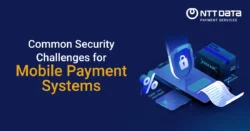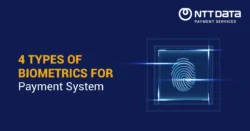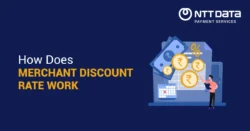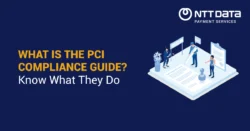
Main Difference Between UPI & E-RUPI
Over the past few years, digital payments have seen massive growth in India with the introduction of innovative platforms like Unified Payments Interface (UPI) and e-RUPI. This blog aims to highlight the key differences between the Unified Payments Interface (UPI) and e-RUPI, two important digital payment mediums in India.
Read more »
Common Security Challenges For Mobile Payment Systems
Mobile commerce’s rapid expansion has resulted in the growing popularity of mobile payment systems. However, they introduce new security challenges for mobile payments that need to be addressed. This blog discusses the key security challenges for mobile payment systems and provides best practices to help secure mobile transactions.
Read more »
4 Types Of Biometrics For Payment System
Biometric payment systems use unique physical or behavioural characteristics to securely authenticate transactions. Traditional methods like passwords and PINs are increasingly vulnerable to breaches, while biometrics have always been one of the most secure ways to safeguard transactions.
Biometrics, which leverage unique physiological and behavioural traits, offer a great alternative for authentication in payment systems.
In this blog, we will be exploring biometrics, their functionalities, and the four primary types of biometrics used in payment systems, their benefits and applications.

How Does Merchant Discount Rate Work
Digital payments have become the new normal and we need to understand that the Merchant Discount Rate (MDR) plays a crucial role in the transaction process. For businesses that accept credit and debit card payments, understanding MDR (Merchant Discount Rate) is essential for managing costs and optimising payment processing.
In this blog, we will delve deep into what the merchant discount Rate is, its benefits, key features, and how it works.

What is the PCI Compliance Guide? Know What They Do
Securing payment card information is crucial in today’s digital world. With the rise in data breaches and cyber threats, businesses must follow strict security standards to protect customer data. The Payment Card Industry Data Security Standard (PCI DSS) ensures that companies accepting, processing, storing, or transmitting credit card information maintain a secure environment
In this blog, we shall explore what PCI DSS is, its key features, the benefits of PCI compliance, and the role of the PCI compliance guide.


